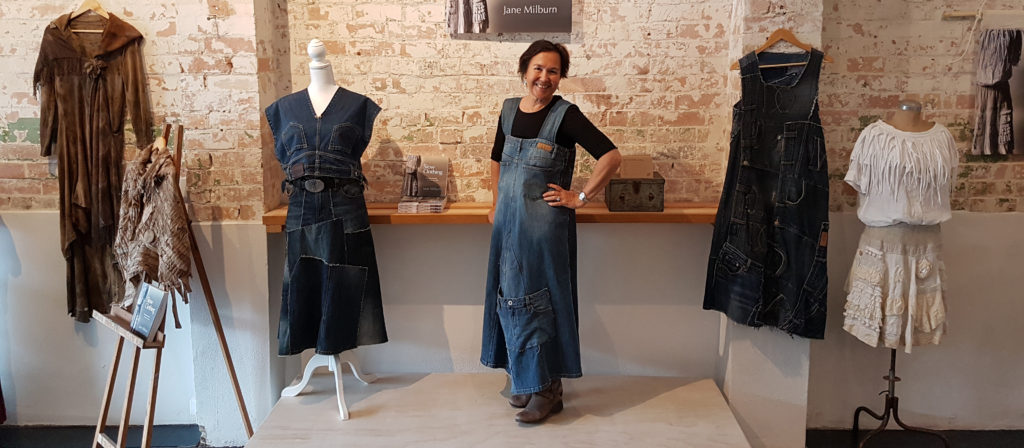The simplest way to reduce our material footprint is wear clothes that already exist and wear them for longer. Less shopping and washing makes economic and ecological sense.
At no time in history have there been so many clothes in the world. In the four years to 2016, global production of new clothes rose 25 percent as did the export of cast-offs from Australia to the third world.
Define ethics as ‘the right thing to do’ and it becomes common sense to shop second-hand first, and re-wear what we own. These are the actions of thinking people.
With globalisation and fast fashion, clothes have never been cheaper. After a lightbulb moment in 2011 at a pre-loved Fashion for Flood fundraiser when I bought 30 tops for $60, I stopped buying new (except shoes and underwear) set up Textile Beat and created a slow clothing philosophy.
In a consumerist society, we are encouraged to shop for fun and marketed to at every turn. Australians collectively have $45 billion in credit card debt to show for that, and more than one in six are struggling to repay debt.
Time to get a grip. Living in a climate-changed world with evidence of mounting waste and debt burdens, it is time to think and act differently. Fashion by definition is ever changing therefore we can never keep up, even with constant purchasing. Best be independent, be indie, be yourself.
Enter REVIVE, a pop-up preloved fashion festival on the afternoon and early evening of August 17 at South Bank Forecourt, showcasing Brisbane’s charity and second-hand clothing stores and building the conversation around independent styling and developing sustainable dress sense.
REVIVE arose from advocacy to Brisbane City Council for a strategy to reduce textile waste. Revive is one of 10 elements of the Slow Clothing manifesto, the others being: think, natural, quality, local, few, care, make, adapt and salvage.
Slow Clothing is a way of considering and choosing clothes to ensure they bring meaning, value and joy to every day. It is a holistic approach to reduce our material footprint through every day dressing for health and wellbeing rather than status and looks.
Second-hand is the new organic because when we buy preloved clothes, we do not add chemicals or production stress to the environment. There is no use-by date on simple, natural, well-made clothes. We can wear them until they wear out.
Slow Clothing values personal connection to garments through the stories and memories they hold. It considers the ethics and sustainability of garments, their comfort and longevity, and our intrinsic desire to be more engaged with the making process.
There is no one way to go about choosing and managing our wardrobe collection. We arrive at our own solution, based on our age and stage. At all stages though, less is indeed more.
Come along to REVIVE to engage in modest purchasing from thrift stalls (if you need anything) and hear talks from eco stylists and change agents discussing ideas, tips and solutions to dress affordably, ethically, and sustainably. You can find me in the Conversation Tent from 1-1.45pm, and the Slow Clothing Tent for the rest of the time. I will have upcycled garments for show and tell, and copies of my book Slow Clothing: Finding meaning in what we wear available. This article first published with Live for Less. #revive #revive2018 #popupsecondhandfashionfestival
